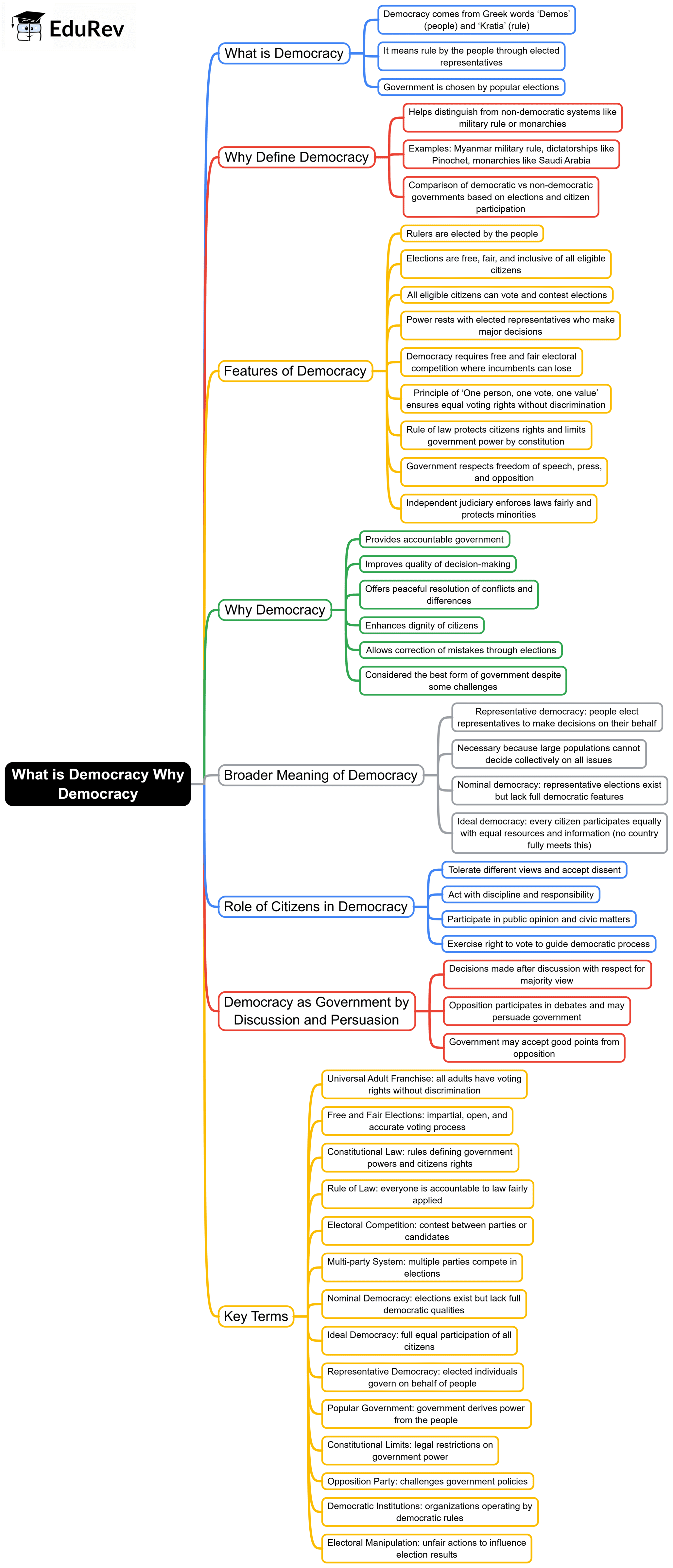Class 9 Exam > Class 9 Notes > Social Studies (SST) Class 9 > Mind Map: What is Democracy? Why Democracy?
Mind Map: What is Democracy? Why Democracy? | Social Studies (SST) Class 9 PDF Download

The document Mind Map: What is Democracy? Why Democracy? | Social Studies (SST) Class 9 is a part of the Class 9 Course Social Studies (SST) Class 9.
All you need of Class 9 at this link: Class 9
|
55 videos|525 docs|78 tests
|
FAQs on Mind Map: What is Democracy? Why Democracy? - Social Studies (SST) Class 9
| 1. What is the definition of democracy? |  |
Ans. Democracy is a system of government in which the power is vested in the people, who exercise that power directly or through elected representatives. It is characterized by free and fair elections, the protection of individual rights, and the rule of law, ensuring that every citizen has an equal voice in the decision-making process.
| 2. Why is democracy considered important for society? |  |
Ans. Democracy is important because it promotes equality, accountability, and participation. It allows individuals to express their opinions and influence government policies, fostering a sense of ownership and responsibility towards the community. Moreover, democratic societies are generally more stable, prosperous, and respectful of human rights compared to non-democratic regimes.
| 3. What are the key features of a democratic system? |  |
Ans. Key features of a democratic system include free and fair elections, the separation of powers among different branches of government, the protection of fundamental rights and freedoms, active participation of citizens in political processes, and a system of checks and balances to prevent abuse of power. These elements work together to ensure that the government remains accountable to the people.
| 4. How does democracy differ from other forms of government? |  |
Ans. Democracy differs from other forms of government, such as autocracy or oligarchy, in that it emphasizes the role of the people in governance. In autocracies, power is concentrated in the hands of a single leader or a small group, often without the consent of the governed. In contrast, democracies prioritize collective decision-making and individual rights, allowing citizens to have a say in how they are governed.
| 5. What are some challenges faced by democracies today? |  |
Ans. Democracies face several challenges, including political corruption, inequality, misinformation, and threats to civil liberties. Additionally, voter apathy and low participation rates can undermine the effectiveness of democratic processes. These challenges require ongoing efforts to strengthen institutions, promote civic engagement, and ensure that all voices are heard within the democratic framework.
Related Searches






















